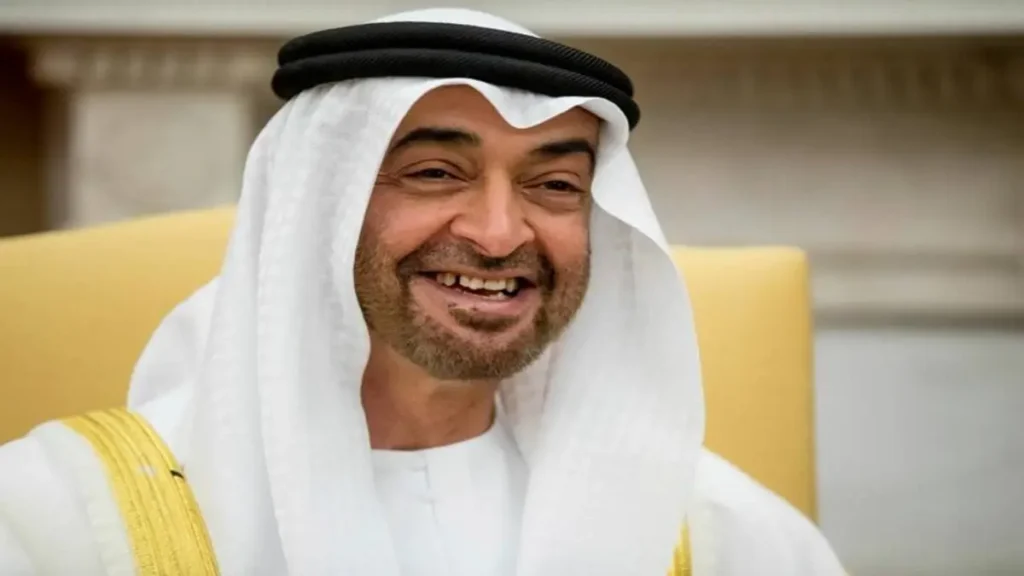In 2025, Abu Dhabi isn’t just making headlines—it’s rewriting the global definition of wealth, earning the title of Abu Dhabi crowned richest city. With a sovereign wealth portfolio exceeding US$1.7 trillion, a GDP on track to surpass AED 1.3 trillion, and explosive growth across non-oil sectors, the UAE capital has officially been crowned the richest city in the world. But what does that actually mean? And more importantly, how did we get here?
In this deep dive, we go beyond the headlines to explore the economic drivers, investment strategy, population shifts, tech evolution, and financial mechanics behind Abu Dhabi’s historic rise to the top. If you’re looking for a listicle or a fluff piece, this isn’t it. This is the only article on the internet with everything you need to understand why Abu Dhabi now wears the crown.
💰 The Numbers That Matter: Wealth in Absolute Terms
Let’s start with the figures:
- Combined sovereign wealth assets: Over US$1.7 trillion (as of Q2 2025)
- Abu Dhabi’s 2024 GDP: AED 1.28 trillion (US$349 billion)
- GDP Growth YoY (2023–2024): 3.8%
- Non-oil GDP growth: 6.2%, now making up 54.7% of the economy
- High-net-worth individuals (HNWIs): 22,700+ residents with over US$1M in liquid assets
This level of fiscal firepower not only puts Abu Dhabi ahead of every other city in terms of capital managed, it also reflects real-time economic activity and infrastructure expansion.

🏦 Sovereign Wealth Mastery: The Trillion-Dollar Engine
No other city on Earth commands capital the way Abu Dhabi does. The emirate’s three major sovereign wealth funds—ADIA, Mubadala, and ADQ—are not only among the largest in the world, but also among the most globally diversified.
Breakdown:
- ADIA (Abu Dhabi Investment Authority): ~US$950 billion
- Mubadala Investment Company: ~US$360 billion
- ADQ: ~US$130 billion
Combined, they are reshaping global investments across sectors like AI, aerospace, life sciences, logistics, infrastructure, semiconductors, and green energy.
What sets Abu Dhabi apart is not just scale—it’s strategy. ADIA’s passive indexing complements Mubadala’s active dealmaking across North America, Europe, and Asia. ADQ, meanwhile, is focused on UAE national development.
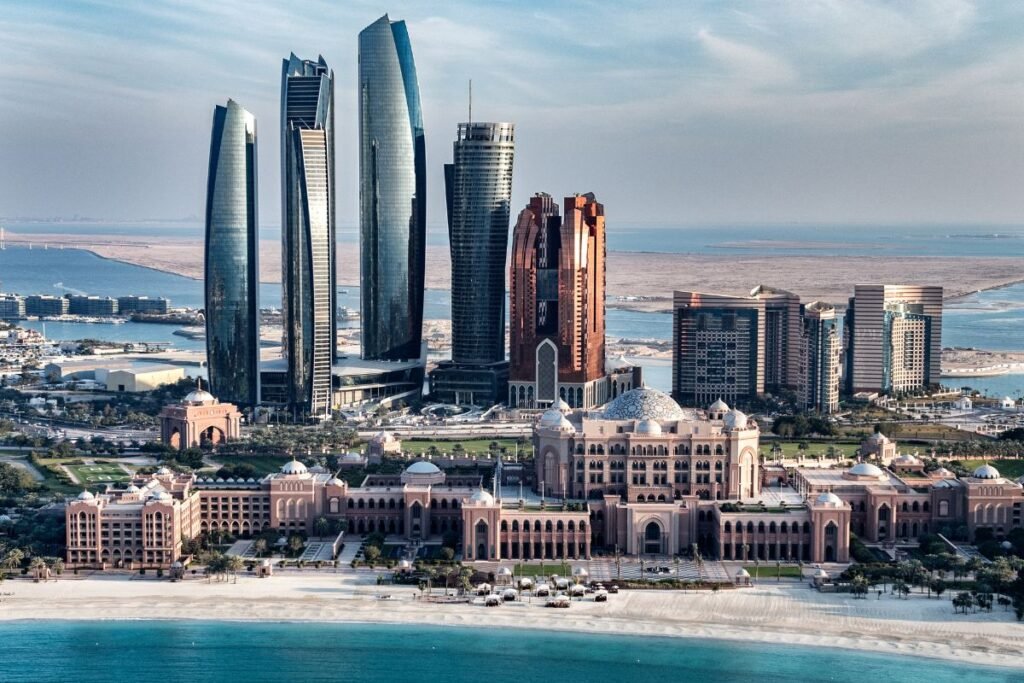
📈 Economic Diversification: Beyond Oil
Yes, Abu Dhabi is an oil giant. But in 2025, non-oil sectors will be driving more than half the economy.
Key sector growth (2024):
- Manufacturing: AED 112 billion
- Construction: AED 107 billion
- Finance & Insurance: AED 78 billion
- Real Estate: AED 45 billion
- Healthcare & Social Services: AED 23 billion
This is intentional. The emirate’s Vision 2030 policy targets long-term sustainability by reducing oil dependence. With initiatives like the Abu Dhabi Industrial Strategy and Tech Ecosystem Development Fund, the plan is working.

🌍 Global Investment Reach: UAE Capital, World Impact
Abu Dhabi’s sovereign funds have stakes in virtually every sector in every major region—from data centres in the Netherlands to EV infrastructure in California. Through joint ventures, SPACs, and direct equity positions, the emirate has global reach.
Mubadala now holds positions in:
- GlobalFoundries (semiconductors)
- Silver Lake (tech private equity)
- Investcorp
- Lucid Motors
Meanwhile, ADQ has expanded into logistics, ports, and pharmaceuticals across MENA and Africa.
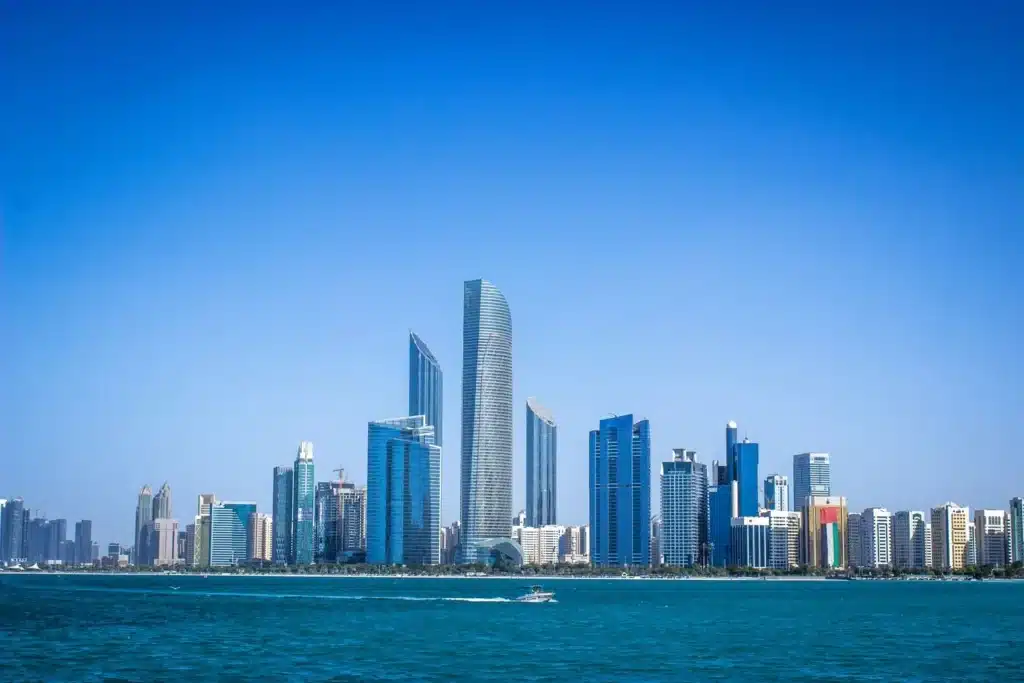
🏙 Real Estate: High-Yield Growth, Urban Luxury
Abu Dhabi’s property market has seen a dramatic transformation. In 2024:
- Average residential sale prices: up 9.2%
- Off-plan sales: up 47% YoY
- Luxury villa demand: up 63%
International investors, particularly from Europe and Asia, are acquiring in Saadiyat, Yas Island, and Al Reem. The capital’s low taxation and political stability continue to attract ultra-high-net-worth buyers.
🧠 The Rise of Smart Capital: Tech, AI, and Innovation
Abu Dhabi isn’t just investing in infrastructure—it’s building future-proof tech ecosystems.
Major projects:
- Hub71: Startup accelerator with over 260 tech companies (valued at US$5.3B+)
- AI University (MBZUAI): The world’s first graduate AI research university
- G42: A national AI champion now operating in 25+ countries
In 2025, Abu Dhabi is no longer an oil-and-gold economy—it’s a frontier capital of data, automation, and quantum strategy.

📊 Abu Dhabi vs. The World (2025)
| City | GDP (USD) | SWF Holdings | HNWI Residents | Non-Oil % |
|---|---|---|---|---|
| Abu Dhabi | $349B | $1.7T | 22,700+ | 54.7% |
| New York | $450B | $0.0T | 345,000 | 96.2% |
| Singapore | $397B | $1.0T | 244,000 | 82.3% |
| London | $410B | $0.0T | 227,000 | 93.1% |
| Riyadh | $251B | $0.9T | 18,000+ | 47.5% |
Abu Dhabi leads in sovereign wealth, regional influence, and strategic investment per capita. Its hybrid of state-led capital with private sector innovation is the envy of the financial world.

📉 What This Means for the UAE Economy
: Abu Dhabi’s rise fuels national growth. The UAE now ranks:
- #1 in MENA for global FDI inflows (US$24.3B)
- Top 3 globally for ease of doing business in digital assets
- Top 10 globally in smart city readiness
With more economic free zones, a booming fintech sector, and massive infrastructure projects underway, Abu Dhabi’s success is elevating the entire federation.
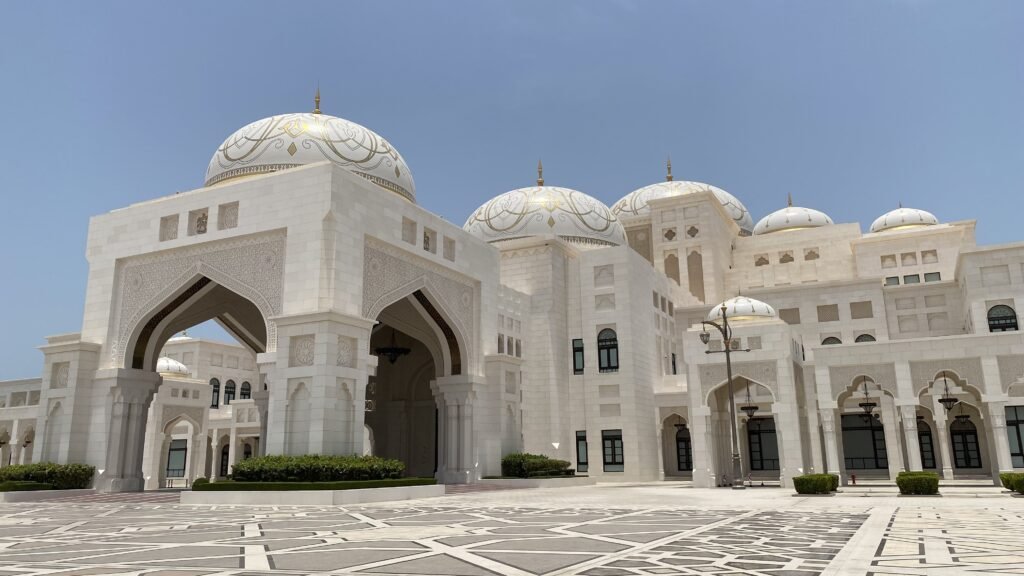
Abu Dhabi’s Global Influence and Partnerships
Abu Dhabi’s vast wealth enables it to establish influential partnerships worldwide. The city actively invests in global markets, forming strategic alliances in Europe, the United States, Asia, and Africa. These partnerships not only bring economic returns but also position Abu Dhabi as a respected global player. For example, ADIA has stakes in numerous major international companies, including real estate investments in New York and London and technology partnerships across Silicon Valley.
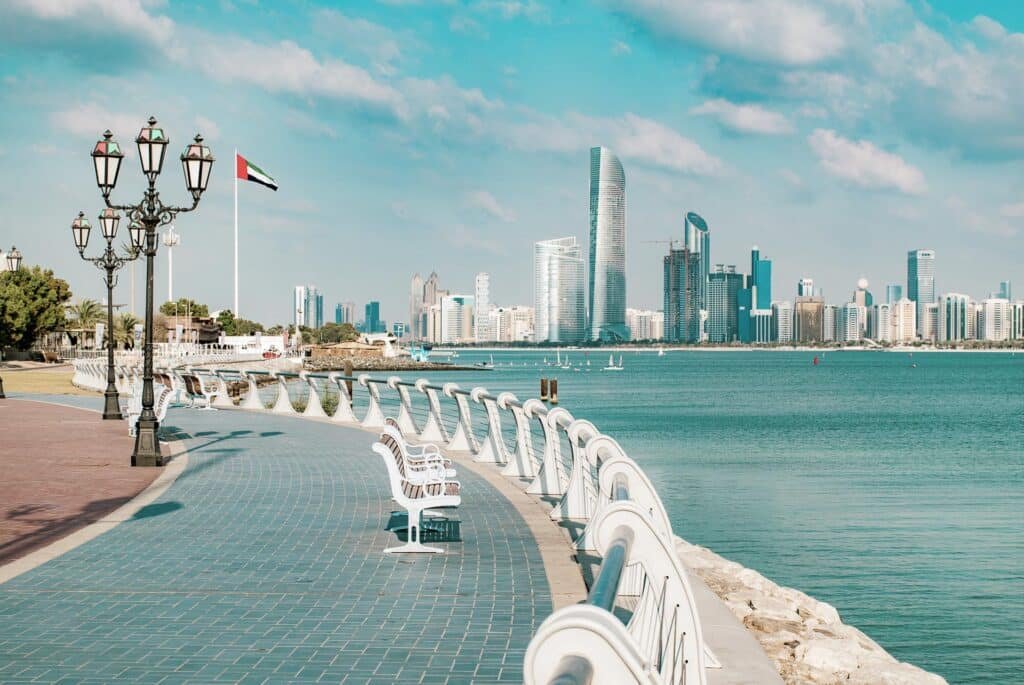
The city’s leadership in sustainable finance has also attracted international attention. Abu Dhabi hosts annual conferences like the Abu Dhabi Sustainability Week and World Future Energy Summit. These events draw leaders and innovators from around the world to discuss and collaborate on pressing environmental issues. They underscore Abu Dhabi’s commitment to a sustainable future and further its reputation as a forward-thinking, solution-driven city.

A Vision for the Future
As the wealthiest city in the world, Abu Dhabi is not slowing down. The Emirate’s Abu Dhabi Economic Vision 2030 outlines a comprehensive plan to drive economic progress through innovation, talent development, and diversified investment. This blueprint sets ambitious goals for the next decade, focusing on education, healthcare, infrastructure, and environmental sustainability.

With initiatives in place to nurture a knowledge-based economy, Abu Dhabi aims to attract global talent. This is particularly true in sectors such as artificial intelligence, biotechnology, and renewable energy. The government’s emphasis on fostering education and innovation highlights its commitment to a prosperous future. A future where the economy thrives independently of oil.

Setting the Standard in Global Wealth
Abu Dhabi’s recognition as the wealthiest city reflects the success of its diversified economy, strategic investments, and innovative projects. The city has transformed from a regional oil hub to a global leader in finance, culture, and sustainable development. Its dedication to progress and stability offers a model for cities worldwide, showing how thoughtful investment and a forward-thinking approach can lead to unprecedented growth.
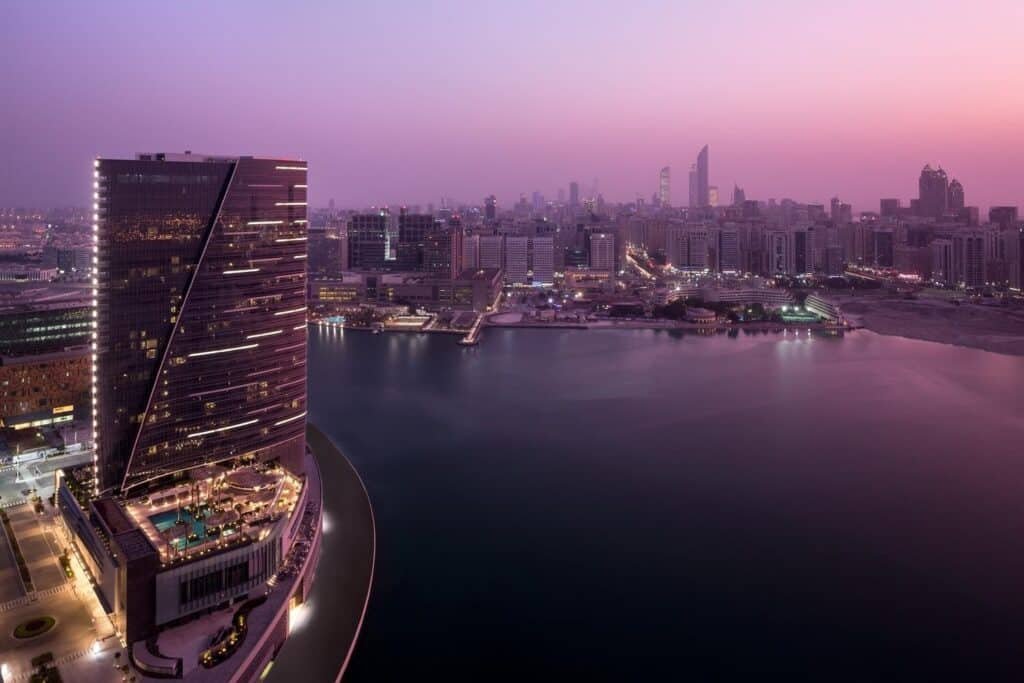
🚀 Final Thought: This Isn’t a Peak—It’s a Launchpad
Abu Dhabi’s title as the world’s richest city isn’t just about assets—it’s about intention. Strategic diversification, generational capital, and visionary planning are creating a new global financial paradigm.
It’s no longer about how much you have, but what you do with it. And in 2025, no city does more with its money than Abu Dhabi.



